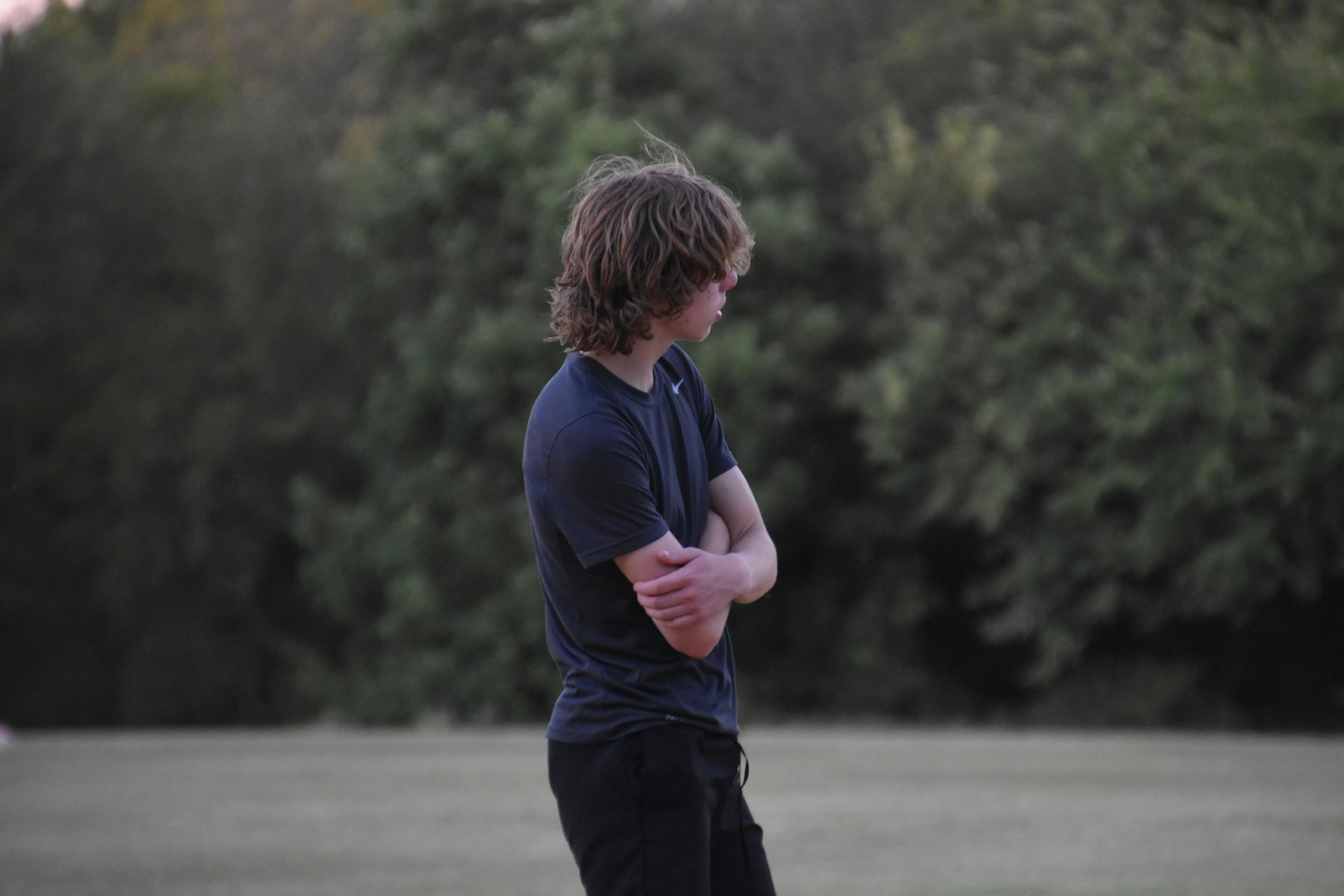Abandonment wounds are difficult to deal with because we often don’t realize we have them. We sustain these wounds from childhood, and they remain with us as adults. They affect many different parts of our lives and relationships, shaping the way we feel about ourselves and the things we believe about others.
It is possible to identify where our abandonment wound is and how it’s affecting us. As we begin to confront our beliefs and behaviors connected to our wounds, we will find ways to overcome them and free ourselves from fear and mistrust.
Where It All Begins
Sometimes, it helps to relive our past and talk about our childhood experiences. Certain events that we go through as children leave us feeling unsafe and uncertain. Adults, and our parents especially, are supposed to make us feel seen, heard, understood, and safe, but sadly, not every parent manages to do this. There could be many ways that we felt neglected, abandoned, or even betrayed by our parents, whether they were aware of their behavior or not. Plano Christian Counseling offers compassionate, faith-based support to help individuals process childhood wounds and move toward healing and restoration.
The relationships we have with our parents in childhood affect the connections we make as adults. If we feel unsafe and uncertain as children, the chances are we are going to struggle with trusting others in our adult friendships and relationships. If we were left yearning for a stronger bond with our parents or wished they had been more constant in their care of us, we might be clingy and insecure in our adult connections.
We might never have framed our parents’ actions as neglectful or damaging, but we still find ourselves triggered by certain things as adults. Sometimes, these triggers are small, like an unanswered text message or unclear communication on a work project. Things like these, which can be dealt with easily, cause us to spiral in our thoughts and emotions. Sometimes, we only know that something is not right with us, but we can’t articulate what it is or when it began.
Triggers and Patterns
Most of us conduct ourselves on autopilot, meaning that we react and respond to issues as they arise. We don’t always stop to ask ourselves, “Why was this triggering for me?” or “What caused me to respond in that way?” We need to be self-evaluating and introspective if we are to spot the abandonment wounds we might be carrying.
It might not come naturally to us, but if we can begin asking ourselves important questions about our beliefs and behavior, we will have started the healing process for our abandonment wounds.
Triggers are often small, easy-to-identify occurrences that cause us to feel certain things. For example, a text message that is not replied to makes us feel insignificant or a nickname someone calls us leaves us feeling disrespected. Just as when we are at the dentist and wince every time he pokes close to a tender spot, so triggers show us the parts of our self-esteem that are affected and in need of healing.
Similarly, we develop patterns of behavior in relationships, friendships, and careers. We might place others’ needs before our own, struggle to express our desires, or fail to set boundaries. Patterns of behavior like these often stem from abandonment wounds and can help us as we begin to work on ourselves to heal these wounds.
Coming to Terms With Abandonment Wounds
Even though our childhood wounds affect aspects of our adult lives, we can learn from them and begin to change. We must identify our triggers and patterns and then start changing our behavior. If we can do this, we will begin to heal our abandonment wounds. Every abandonment wound comes out of unique circumstances, but there are behaviors common to people with abandonment wounds that need to be addressed and changed.
Clarify doubts Many people with abandonment wounds tend to avoid having direct conversations about important matters. This might be because they are afraid of hearing the truth or simply because they never had open communication with their parents. Regardless of the cause, this creates a breeding ground for doubts and fears to flourish, where they jump to hurtful conclusions to fill in the gaps of misunderstanding.
Sometimes, we need to set our teeth and ask questions that will clarify our doubts. For example, when we are triggered by an unanswered text message, we could simply ask our friend why they didn’t respond, rather than getting upset over an assumption we made about them. It might take some practice, but the more we can clarify our doubts, the more secure we will feel in relationships, friendships, and at work.
 Address murky relationships When we fear rejection or abandonment, we might accept the worst in relationships. If we constantly find ourselves in “situationships” or relationships with unclear boundaries, it might be because we are afraid to confront the situation and be vulnerable with our significant other. Unfortunately, this keeps us stuck in limbo, where we are unsatisfied with the parameters of the relationship but too afraid to confront it.
Address murky relationships When we fear rejection or abandonment, we might accept the worst in relationships. If we constantly find ourselves in “situationships” or relationships with unclear boundaries, it might be because we are afraid to confront the situation and be vulnerable with our significant other. Unfortunately, this keeps us stuck in limbo, where we are unsatisfied with the parameters of the relationship but too afraid to confront it.
It is only when people are honest and vulnerable that they can begin to feel secure in a relationship. People with abandonment wounds sometimes subconsciously seek out others who are like them, who contend with murky, undefined relationships. Being in a relationship with someone who is damaged in the same way as us can be complicated. It’s always healthiest to address unclear relationships.
Express your needs People with abandonment wounds tend to be people-pleasers, elevating the needs of others above their own. They do this to win the allegiance or affection of others, but it results in them feeling unseen and undervalued, adding to the pain of their abandonment wound. Some people grew up in homes where their voices and preferences were never heard, and as adults, they struggled to express their preferences, boundaries, or needs.
It’s not easy to begin expressing yourself when you have constantly felt overlooked or ignored. Honest communication is like a muscle that needs to be developed, and it only gets stronger the more you practice. A good place to start is with someone you trust, who will listen to you and give reassurance.
Begin addressing your need for reassurance Everyone needs reassurance from time to time and there is nothing shameful or weak in needing reassurance occasionally. However, many people with abandonment wounds feel insecure and uncertain by default. It can become frustrating and tiring for those closest to them to have to provide them with constant reassurance.
It’s a long journey to start feeling secure in relationships, but it begins with questions. We could ask ourselves, “Why do I feel insecure despite receiving validation?” or “What could they do for me that would put my mind at ease?” Our hearts get hurt in specific ways, and we look to others to heal those wounds. Sometimes, we are the only ones who can heal our heart wounds.
Have those tough conversations Neglected children often grow up with a fear of conflict. A frank conversation can feel the same as a confrontation to them. They might do their best to avoid sharing their honest opinions on any topic. They might have rarely encountered people who define their boundaries, express their emotions, and state their preferences. Meeting people like this makes them uncomfortable.
The only remedy for this is to be exposed to more honest conversations and to practice having them. The more tough conversations we can have, the less sensitive we will be. Some things might not come naturally, but they get easier with practice.
Help for Healing: Christian Counseling in Plano, Texas
It’s not easy to confront abandonment issues, but it is possible to address them and begin healing from them. When we do so, our relationships will improve, and we will start to feel more secure in ourselves. While it is helpful to work on ourselves and involve friends and family, sometimes we need an outside perspective.
That’s where Christian counselors in Plano, Texas can help; they provide space for us to unpack our issues, and we can gain some helpful perspective on how to manage them.
If you believe you could benefit from meeting with me or another Christian counselor in Plano, Texas, contact our office today at Plano Christian Counseling in Texas for more information and to get connected with a counselor in Plano. The journey to healing takes one brave step at a time.
“Sitting in the Stadium Seats”, Courtesy of wgbieber, Pixabay.com, CC0 License
-
Ashlynn Barnette: Author
I offer compassionate Christian counseling for teens and adult individuals facing a variety of challenges including anxiety, depression, trauma, grief, and more. I would be honored to come alongside you, listen to your story, and seek to understand y...
-
Kate Motaung: Curator
Kate Motaung is the Senior Writer, Editor, and Content Manager for a multi-state company. She is the author of several books including Letters to Grief, 101 Prayers for Comfort in Difficult Times, and A Place to Land: A Story of Longing and Belonging...
DISCLAIMER: THIS ARTICLE DOES NOT PROVIDE MEDICAL ADVICE
Articles are intended for informational purposes only and do not constitute medical advice; the content is not intended to be a substitute for professional medical advice, diagnosis, or treatment. All opinions expressed by authors and quoted sources are their own and do not necessarily reflect the opinions of the editors, publishers or editorial boards of Stone Oak Christian Counseling. This website does not recommend or endorse any specific tests, physicians, products, procedures, opinions, or other information that may be mentioned on the Site. Reliance on any information provided by this website is solely at your own risk.






